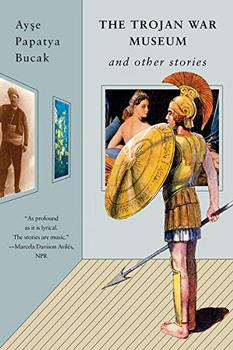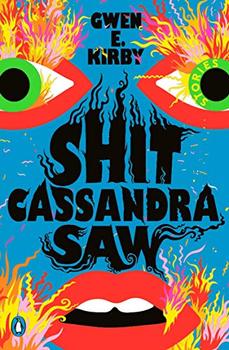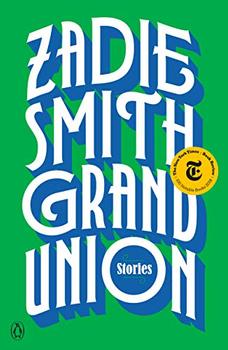Summary | Excerpt | Reviews | Beyond the book | Read-Alikes | Genres & Themes | Author Bio

Critics' Opinion:
Readers' Opinion:
First Published:
Aug 2019, 192 pages
Paperback:
Aug 2020, 192 pages
 Book Reviewed by:
Book Reviewed by:
Lisa Butts
Buy This Book
In her dazzling debut, O. Henry and Pushcart Prize winner Ayşe Papatya Bucak glides through the historical, the fantastical, and the mythological in stories that pay homage to her Turkish heritage while probing the depths of the human condition. The stories are funny, salient and wistful, often all at once, establishing the author as a maverick at the height of her powers.
The collection opens with the magical realism-tinged "The History of Girls," set in the immediate aftermath of an explosion in a Turkish boarding school dormitory. A first person narrator using the collective "we" describes the experiences of the girls buried in the rubble, "diamonds waiting to be dug out," as they hope for rescue, along with those who did not survive. The dead comfort the living, and the living comfort the dead. As the girls reflect on the lives they have had, and the futures they will never have, the author provides measured social commentary on the joys and the perils of Muslim womanhood.
In "Iconography," a young Turkish woman studying at an American university goes on a hunger strike for reasons that are inexplicable to herself and those around her, allowing each to posit their own interpretation—is she concerned about the environment? The plight of farmers? Poverty? Furthermore, should she be forced to eat if her health is at risk? Bucak imbues the story with a manic absurdity as the hunger strike evolves from an affectation to a serious crisis. Through the inclusion of a few alternate endings, the author ultimately allows the reader to choose not only their own interpretation of the young woman's actions, but what happens to her.
"Mysteries of the Mountain South" follows protagonist Edie as she moves to southwestern Virginia to care for her dying grandmother. Edie has just graduated from college and chooses to take on this task instead of moving to California for a lucrative coding job because she is feeling lost and unmoored after a bad breakup. As she gets to know her grandmother in a more authentic way, she also discovers herself in this remote Appalachian setting. Bucak then shifts gears for the remarkably inventive title story, which envisions eight different versions of the so-called "Trojan War Museum," beginning in the immediate aftermath of the war itself, and ending in the year 2145. The description of this final iteration is replete with imaginative, otherworldly details:
You can touch anything in the eighth Trojan War Museum; there are no glass barriers
or alarms or even guards to stop you. Though what you touch might burn or bite or
weigh on you. Sometimes what appears to be an ordinary sword turns out to be a piece
of someone's soul that once picked up cannot be put down.
The final story, "The Gathering of Desire," is set in Philadelphia in 1827, where a Quaker woman whose husband has recently disappeared (and is presumed dead) attends a carnival with her children and finds herself participating in a chess match with a large mechanical opponent called "the Ottoman Turk," operated from the inside by a chess master. When the woman learns that her husband's body has been found, she attempts to help her children cope with their sorrow while attending to her own grief, and the match becomes an elegant, sustained symbol of her resilience.
The Trojan War Museum is a unique balancing act, a testament to Bucak's ability to juggle multiple moods and themes in a way that corresponds with the reality of actual human emotion and captures the complexity of personal motivations. Death is not only sad; it inspires a constellation of feelings that spiral through the grief-stricken in fluctuating waves. People want to do good, but are invariably sidetracked by self-interest. This sophisticated understanding of human behavior, along with Bucak's exceptionally clever plotlines, elevate the collection to greatness.
![]() This review was originally published in The BookBrowse Review in August 2019, and has been updated for the
September 2020 edition.
Click here to go to this issue.
This review was originally published in The BookBrowse Review in August 2019, and has been updated for the
September 2020 edition.
Click here to go to this issue.

If you liked The Trojan War Museum, try these:

by Gwen E. Kirby
Published 2022
Margaret Atwood meets Buffy in these funny, warm, and furious stories of women at their breaking points, from Hellenic times to today.

by Zadie Smith
Published 2020
Zadie Smith has established herself as one of the most iconic, critically respected, and popular writers of her generation. In her first short story collection, she combines her power of observation and her inimitable voice to mine the fraught and complex experience of life in the modern world.





The Flower Sisters
by Michelle Collins Anderson
From the new Fannie Flagg of the Ozarks, a richly-woven story of family, forgiveness, and reinvention.

The House on Biscayne Bay
by Chanel Cleeton
As death stalks a gothic mansion in Miami, the lives of two women intertwine as the past and present collide.

The Funeral Cryer by Wenyan Lu
Debut novelist Wenyan Lu brings us this witty yet profound story about one woman's midlife reawakening in contemporary rural China.
Your guide toexceptional books
BookBrowse seeks out and recommends the best in contemporary fiction and nonfiction—books that not only engage and entertain but also deepen our understanding of ourselves and the world around us.